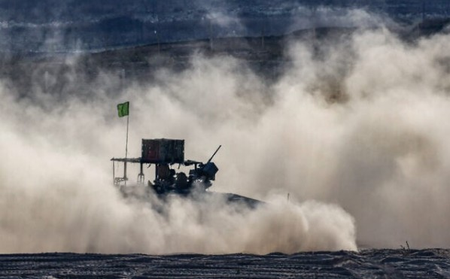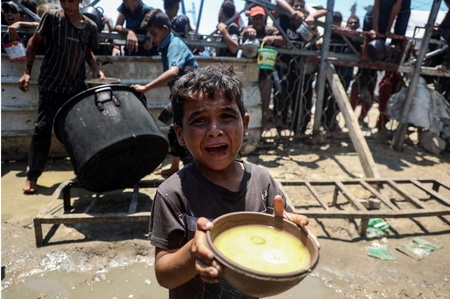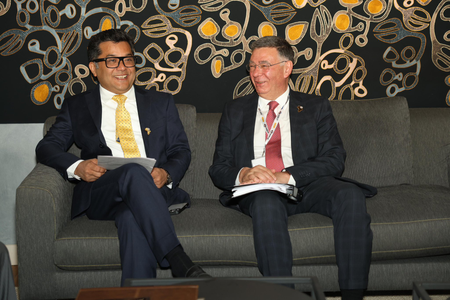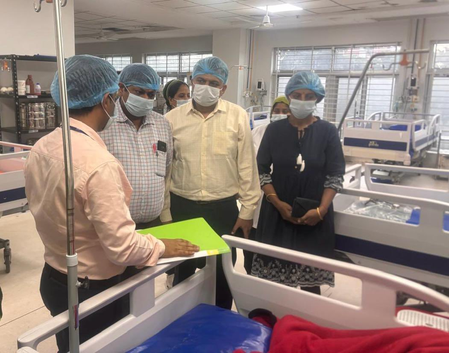
Dhaka, July 25 (IANS) As major differences emerge among key political parties in Bangladesh, the National Consensus Commission (NCC) of the country is struggling to reach an agreement on three key reform issues including the appointment of caretaker government during elections, the creation of the upper house and determining the electoral process for 100 reserved seats for women, local media reported on Friday.
Bangladesh Nationalist Party (BNP) and the radical Islamist Jamaat-e-Islami presented nearly identical proposals, particularly the selection process for the Chief Advisor. However, the NCC could not reach a final decision on the matter due to conflicting views from some other political parties, including the National Citizen Party (NCP), during the second round of the dialogue, Bangladeshi media outlet UNB reported.
Reports suggest that the Commission is working towards building political consensus on 19 major constitutional reform issues by July 31, aiming to draft a national charter (reform charter). But the second-round dialogue of NCC has been delayed amid disputes among the political parties over the three issues.
Earlier this week, another political controversy emerged in Bangladesh as rival parties clashed over one prominent leader simultaneously holding multiple key positions in both the government and the political party.
BNP backed the idea of one person holding multiple roles, including Prime Minister, Leader of the House, and party chief. However, the NCC suggested restricting individuals to a single top position, a proposal supported by the NCP and several others.
In contrast, the Jamaat supported the idea of one person holding two roles, the Prime Minister and Leader of the House, but opposed the control of all three positions by one individual.
Last month, the second phase of discussions involving 30 political parties and the NCC was launched as political uncertainty and instability continued to grip Bangladesh.
Meanwhile, citing political sources, Bangladesh’s leading Bengali daily Prothom Alo reported on Friday that BNP has disagreements with Jamaat, Islami Andolan, and NCP on several reform-related issues.
While Jamaat, NCP, and Islami Andolan demand reforms before elections, BNP wants quick elections. The conflicting viewpoints have led to a war of words between the BNP on one side and Jamaat-e-Islami, NCP, and Islamic Movement on the other side in the political arena.
The verbal clash between the two camps centered on the brutal murder of 43-year-old scrap trader Lal Chand Sohag in Mitford, Old Dhaka, on July 9, reportedly crossed all boundaries of political decorum with personal attacks against each other.
Addressing a press conference last week, BNP Secretary General Mirza Fakhrul Islam Alamgir claimed that the murder of Sohag is a deliberate attempt to “create unrest” in the country and to pursue evil political agendas following allegations of involvement of his party leaders and workers in the gruesome act.
On the same day, Mohammad Selim Uddin, a member of Jamaat-e-Islami’s Central Executive Committee, slammed the BNP without directly naming the party during a rally in Mirpur, Dhaka.
“Due to widespread public opposition, the people of the country had already shown a ‘yellow card’ to a certain political group. Now, following the incident at Mitford, the public has effectively shown them the ‘red card,” said the Jamaat leader.
“The August uprising gave them (BNP) a golden opportunity. They could have used it to train their party workers in moral values and guide them to follow Islamic discipline. But instead, they turned the country into a sanctuary for extortionists. Their current slogan seems to be: Reward for paying extortion, expulsion for refusing,” he added, taking a jibe at the BNP.
The parties that collaborated with the student leaders and Muhammad Yunus to overthrow the democratically elected Awami League government led by former Prime Minister Sheikh Hasina are now lashing out at each other in public rallies and on social media platforms.
–IANS
scor/as




